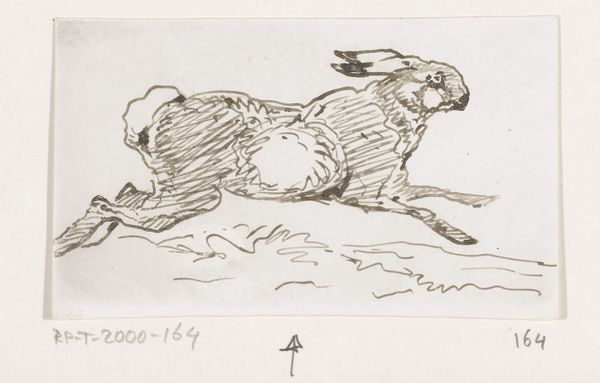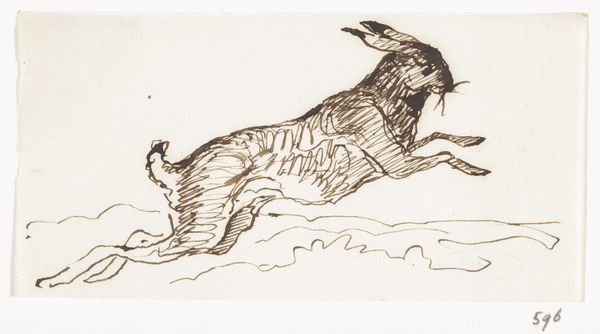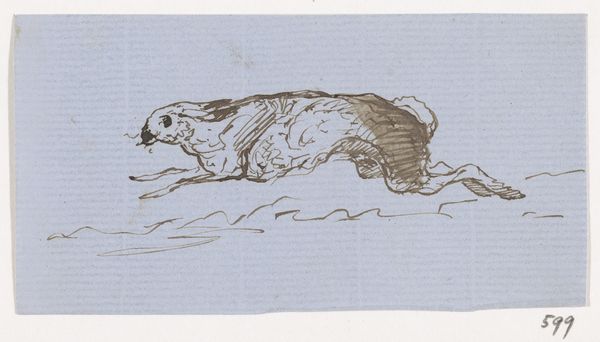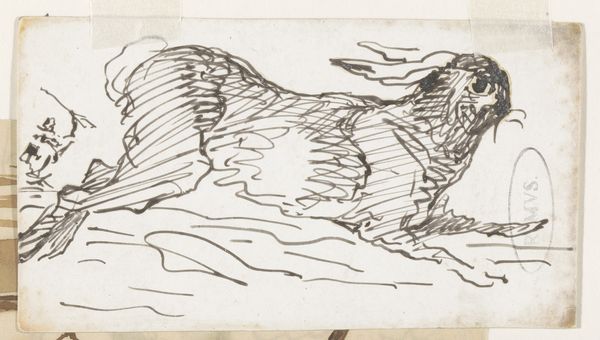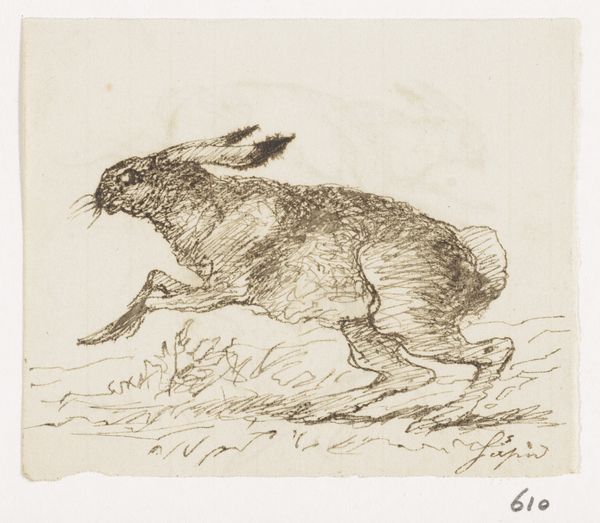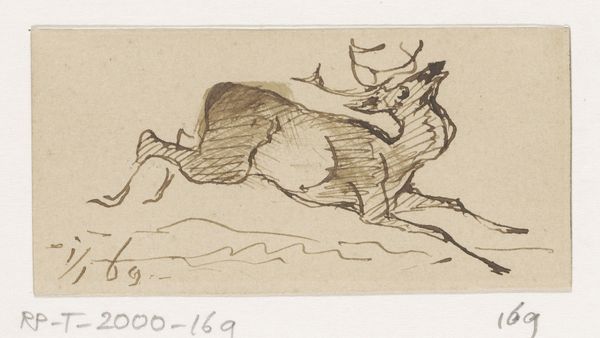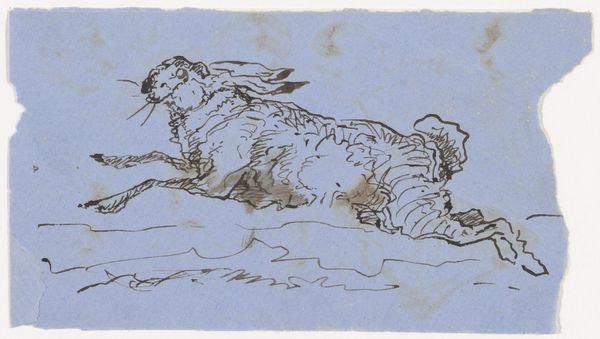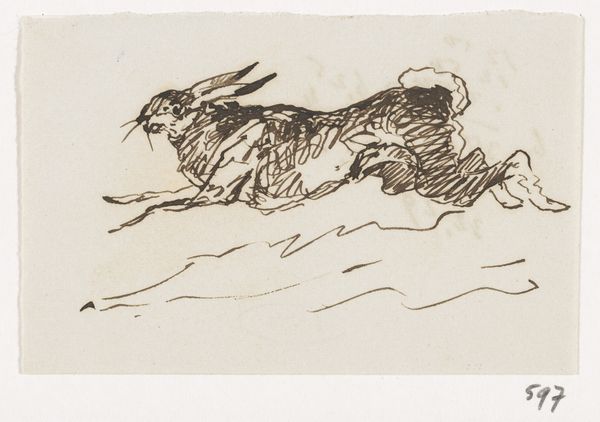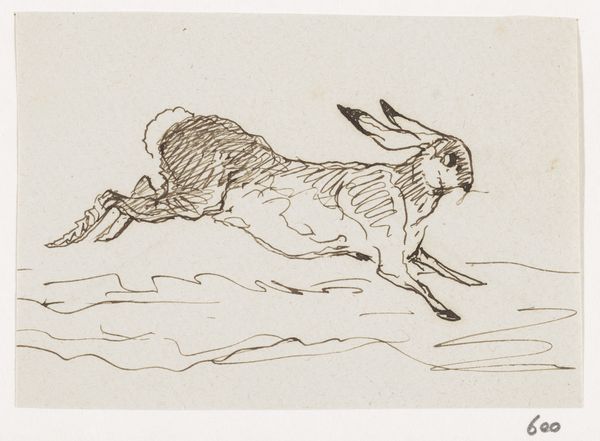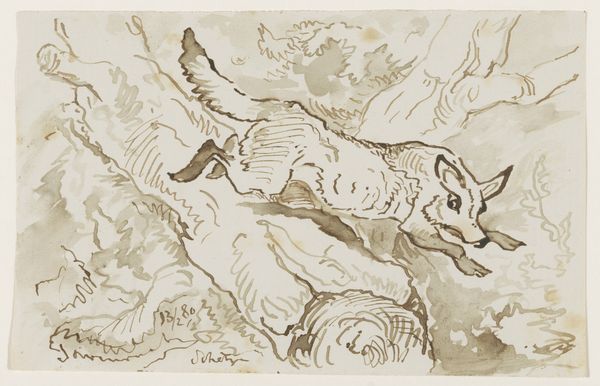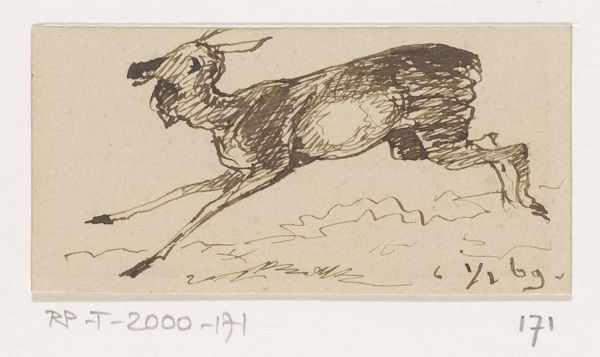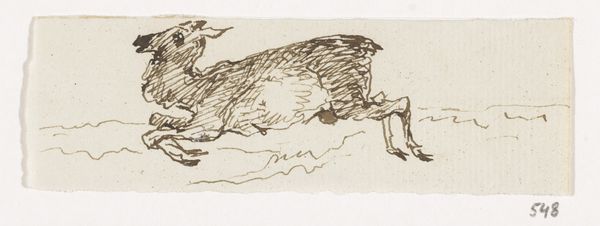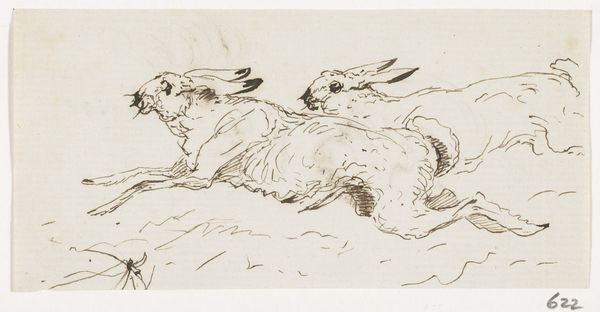
drawing, ink, pen
#
drawing
#
pen sketch
#
figuration
#
ink
#
line
#
pen
#
realism
Dimensions: height 46 mm, width 82 mm
Copyright: Rijks Museum: Open Domain
Curator: This quick sketch, "Haas," or "Hare" if you prefer the English, is by Johannes Tavenraat, created around 1869. It’s ink on paper. What leaps out at you? Editor: Well, the hare itself is a jumble of energetic lines, isn't it? You feel the speed, the raw, startled movement—like it's been caught mid-flight from something. Curator: It's fascinating how Tavenraat suggests form and motion with such economy. As a work on paper, it lacks the high status associated with painting; but for what it lacks in visual 'refinement' it makes up in suggestive contour. Animal sketches like this one, although sometimes intended as independent studies, were quite fashionable in natural history. This one can also be related to the burgeoning science of motion and the visual cultures surrounding animals that were on the rise at that time. What animals and animals behaviors were good for in modern life were popular topics in European countries. Editor: Yes, those scrabbly, urgent lines really convey the animal’s sudden bolt, all raw instinct. Though sketched with minimal strokes, there's an intensity about it, a concentrated energy that just bursts off the page. In that sense it almost captures an underlying modern interest with energy. Curator: You’ve nailed something important. The realism is clear, yet Tavenraat clearly doesn't aim to capture every detail. It's a mood, a fleeting impression rendered in ink. Consider also the power dynamics here between us, the viewer, and the art that invites you to ponder the ethics of representation itself. As observers of this artistic scene, we grapple with the ethical implications embedded within each artistic act. Are we implicated in its capture by observing it as though hunting or caging it? Editor: That's deep. It's more than just a study of an animal. The piece challenges us to acknowledge our gaze, and our complicated place within the ecosystem. Are we appreciating or appropriating? Seeing beauty or seeking to master? Curator: A fitting paradox for a quick sketch of a fleeing hare. A meditation on seeing. Editor: Definitely. This is why I come to galleries - for more questions than answers.
Comments
No comments
Be the first to comment and join the conversation on the ultimate creative platform.
